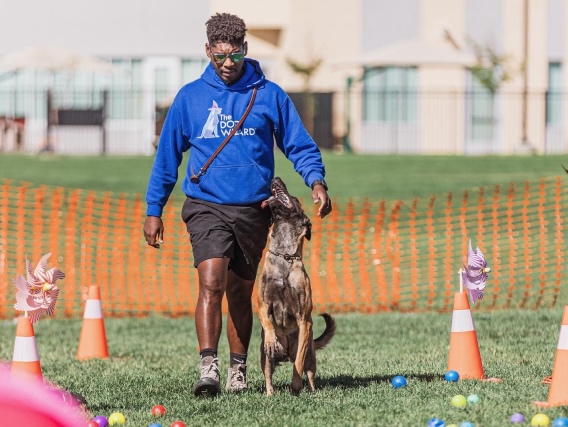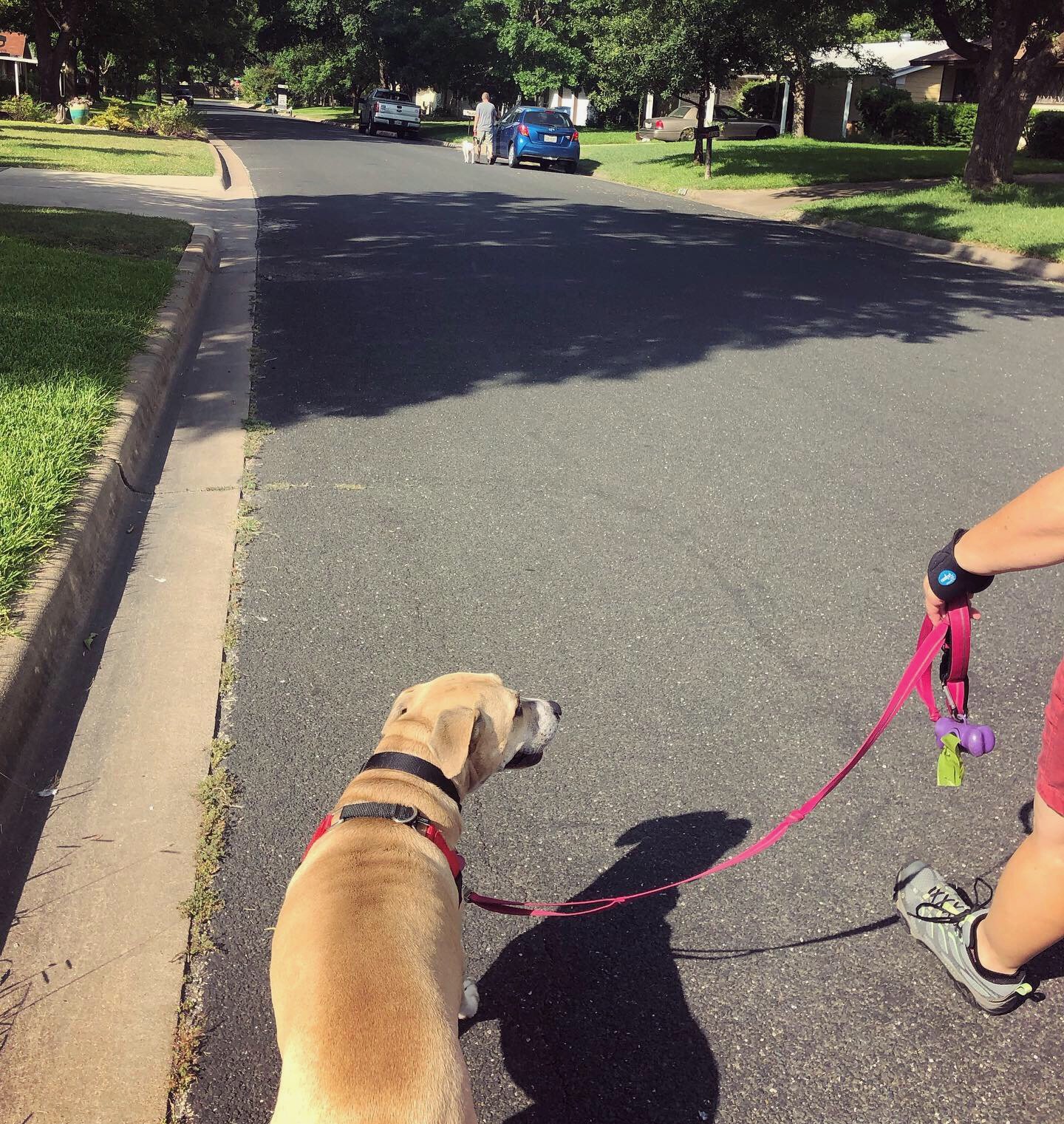Professional Insights on Dog Training Charlotte NC: Change Your Dog Today
Professional Insights on Dog Training Charlotte NC: Change Your Dog Today
Blog Article
Unlock Your Canine's Potential: Proven Canine Training Approaches for Success
Efficient canine training is a nuanced process that pivots on recognizing canine actions and using scientifically backed approaches. By incorporating favorable reinforcement, developing clear commands, and focusing on socialization, pet owners can cultivate an efficient relationship with their pet dogs.
Comprehending Dog Habits
Recognizing canine actions is essential for reliable training and fostering a favorable connection between pets and their proprietors. A detailed grasp of canine body language, articulations, and social interactions is important for identifying their needs and feelings. Dogs connect largely through non-verbal signs; for instance, a wagging tail may suggest excitement, while pinned ears can indicate concern or submission.

In addition, environmental elements play a considerable role fit a pet's actions. Adjustments in regular, new environments, or the presence of unfamiliar individuals can lead to stress and anxiety or anxiety in pets. Acknowledging these triggers makes it possible for proprietors to reduce adverse reactions and establish proper training strategies.
Eventually, a deep understanding of pet behavior lays the foundation for effective training techniques, improving both habits and the total bond between the pet dog and its proprietor. dog training charlotte nc. This knowledge is indispensable for promoting a well-adjusted, happy canine friend
Favorable Reinforcement Techniques
Effective training relies greatly on favorable reinforcement techniques, which have been revealed to yield significant results in forming desired habits in pet dogs. This method entails awarding a pet for exhibiting particular habits, thus increasing the possibility that these habits will be duplicated. Rewards can take numerous forms, consisting of deals with, appreciation, toys, or playtime, depending upon what encourages the individual canine.

It is necessary to progressively terminate benefits as the canine discovers the habits, transitioning to periodic reinforcement. This strategy keeps the behavior over time while protecting against dependence on continuous rewards. By concentrating on favorable reinforcement, fitness instructors can cultivate a relying on connection with their dogs, advertising a cooperative and healthy training environment that enhances overall obedience and performance.
Developing Regular Commands
A basic aspect of successful pet dog training is the facility of constant commands. Consistency in commands is important for effective interaction in between the dog and the instructor. When commands are uniform, dogs find out to associate certain words with desired behaviors, which accelerates the training process and enhances understanding.
To develop regular commands, it is important that all member of the family use the same terms and gestures. If one individual uses "rest" while one more states "rest down," it can develop confusion for the dog. Select clear, distinctive words for commands and make certain everyone associated with the dog's training abides by these over at this website options.
Furthermore, repetition is essential. Enhance commands with constant practice, making sure that the dog receives ample chances to respond appropriately. When a dog successfully follows a command, prompt favorable support should adhere to. This might be in the form of deals with, praise, or play, solidifying the connection in between the action and the command.
Last but not least, be patient. Establishing regular commands requires time and initiative. With dedication and quality, you will aid your canine develop a strong understanding of assumptions, ultimately bring about a mannerly friend.
Socializing and Exposure
Mingling a pet is vital for promoting a well-adjusted and confident buddy. This procedure involves subjecting your pet to a range of settings, individuals, and various other pets to develop their social abilities and adaptability. Early socialization, preferably between train dog to use dog door the ages of 3 to fourteen weeks, is important, as it lays the groundwork for a pet's future habits.
Throughout socializing, goal to provide favorable experiences in various settings, such as parks, hectic roads, and homes with other animals. Introduce your canine to various stimuli, including audios, views, and smells, ensuring that each experience is fulfilling. This exposure aids alleviate worry and anxiousness, leading the way for a much more resistant pet dog.
Participating in regulated group play sessions with other dogs can additionally improve social skills, instructing your pet ideal interactions and boundaries. Always check your canine's convenience level during these experiences, gradually enhancing exposure as their confidence expands. Remember, the goal is to develop a well-shaped pet dog that grows in diverse scenarios, promoting a harmonious connection with both human beings and various other pets. useful site Focusing on socialization will substantially add to your pet's overall happiness and actions throughout their life.
Overcoming Common Educating Challenges

Pets might battle to concentrate in busy or unknown setups. Slowly desensitize your pet to interruptions by starting training in a silent setting and slowly presenting even more stimulations as they come to be skilled.
Additionally, behavior issues like jumping or extreme barking can end up being irritating. Address these by teaching alternate behaviors, such as resting calmly when greeting visitors. Uniformity and persistence are essential; reinforce wanted behaviors consistently and stay clear of scolding, which can lead to confusion.
Last but not least, identify that each canine is one-of-a-kind, and training timelines might differ. Tailor your technique to your pet's private needs, and seek specialist assistance if required. With willpower and the appropriate strategies, overcoming these challenges can bring about a well-trained, satisfied canine companion.
Conclusion
To conclude, unlocking a pet dog's potential necessitates a thorough technique that includes an understanding of canine habits, the application of favorable support techniques, and the facility of consistent commands. Early socialization and direct exposure to diverse settings additionally enhance a pet dog's versatility and self-confidence. By dealing with common training obstacles with tailored approaches and patience, a unified and cooperative connection between pet dog and trainer can be cultivated, ultimately leading to a well-behaved friend capable of flourishing in various scenarios.
Effective pet training is a nuanced procedure that hinges on comprehending canine behavior and utilizing clinically backed approaches.Recognizing canine actions is necessary for effective training and promoting a positive partnership in between pet dogs and their proprietors.Effective training counts greatly on favorable reinforcement techniques, which have actually been revealed to generate substantial results in forming wanted behaviors in pet dogs. When commands are consistent, dogs find out to associate specific words with wanted actions, which increases the training procedure and enhances understanding.
In final thought, unlocking a canine's prospective necessitates a thorough technique that includes an understanding of canine actions, the application of positive reinforcement methods, and the establishment of regular commands.
Report this page